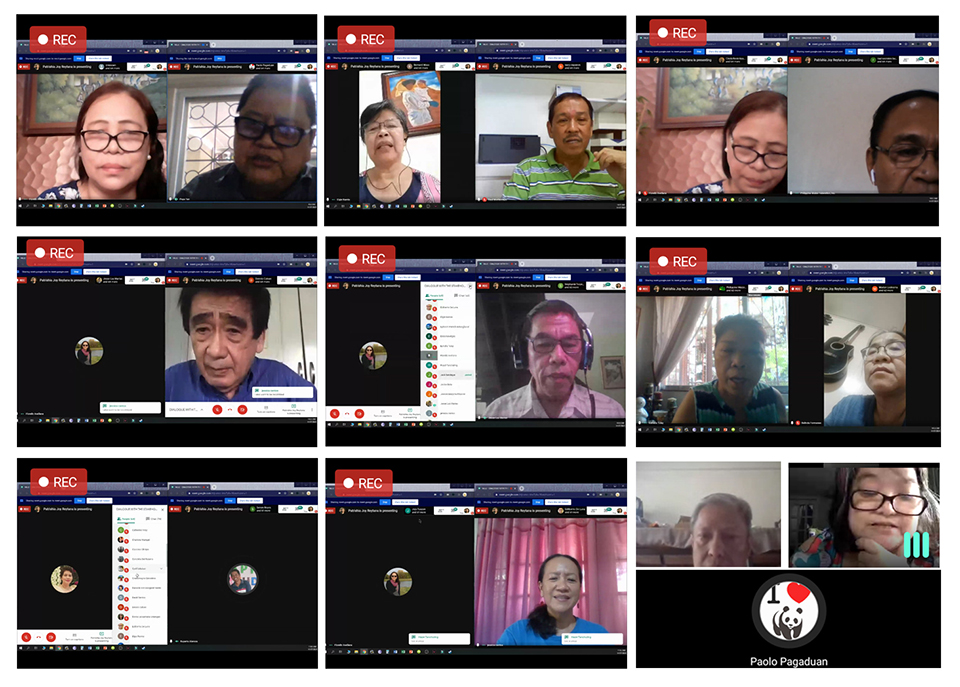
14 JULY 2020. While the entire country continues to adapt to the new normal, the Philippine Council for Agriculture and Fisheries (PCAF) conducted a dialogue with its agriculture and fishery stakeholders on how they can work together to promote policy reforms amid the challenges of COVID-19.
Through a video conference, PCAF Acting Executive Director Liza Battad led the consultation and presented to the stakeholders the agency’s recommended approaches to strengthen its participatory mechanism.
“We are trying to work and redefine this new norm while keeping harmony in our relationships with you. I am always thankful and grateful for your objective opinions, constructive feedback, and we are all willing to co-exist, so we will be able to put forward on our common advocacy for the agriculture and fisheries sectors,” said PCAF Acting Exec. Dir. Battad.
In line with the new value creating strategic shift of PCAF, dubbed as PCAF iCARE, PCAF’s Advisory Special Bodies refocused strategies towards the development of a commodity value chain membership and partnerships, magnifying their roles in reshaping agriculture and fishery policies to support planned effects on ASB’s profitability, productivity and sustainability.
One of the major changes is to aid the face-to-face meetings. PCAF now conducts consultations and dialogues online using various digital platforms to ensure safety of PCAF’s partners while maintaining high standard quality service in its consultations.
With this set-up, the stakeholders suggested that more marginalized agri-fishery groups, like Indigenous People, women’s groups, agrarian reform beneficiaries, and the like can now join the consultations.
However, PCAF clarified that organizations and other groups can join meetings as long as they are part of the agency’s consultative committees and will undergo membership application and approval.
PCAF also assured that it will maintain a private sector-led national committees to ensure check and balance in the Department of Agriculture’s (DA) policy development process and uphold a social contract with engagement ethics that will promote broad-based stakeholders’ participation.
Through the National Consultative Mechanism, PCAF aims to establish and institutionalize the National Banner Program Committees (NBPC) that will serve as the consultative mechanism for policy development, review of program implementation, and monitoring and feedback of the DA banner Programs to ensure that stakeholder’s participation is aligned with the Department of Agriculture strategic thrusts and priorities.
The NBPC will have seven committees namely Rice: Livestock, Poultry and Corn; Agricultural and Fishery Mechanization; Fisheries and Aquaculture; High Value Crops; International Trade and Export; and Agri-Fishery Youthpreneurs Council. (see related article at www.pcaf.da.gov.ph)
In the consultation, stakeholders recommended the promotion of a more progressive, participatory and inclusive approach in consultation by employing a farmer family-centric mechanism. They also pointed out to expand the Committees to cover, not just DA’s Banner Programs, but also other important thematic areas such as women in agriculture, climate change, irrigation, and urban and organic agriculture.
Aside from this, the group also suggested that there should be an assigned and active involvement of a DA Undersecretary in every NBPC Committees to immediately address policy issues and concerns. They also clamored to have a greater involvement in the budget processes.
The DA and PCAF management will review all the comments and recommendations raised in the dialogue to ensure stronger collaboration and partnership between its developmental partners.### JC











